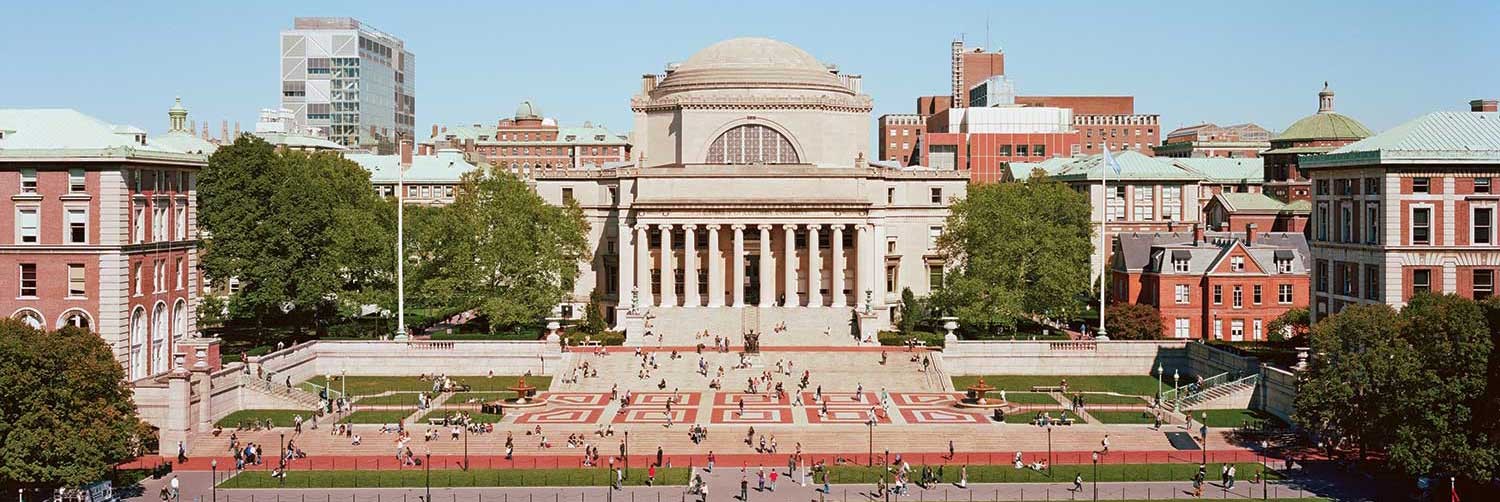Program Information
The Physics Department has an outstanding Ph.D. program for students seeking the highest degree available in an academic discipline. This rigorous program requires students to take classes for 3 or 4 semesters, followed by 3 or 4 years of research in a forefront area of physics. During their Ph.D. research, students work closely with a faculty sponsor and commonly with many other graduate student and postdoctoral researchers. During their research time, Ph.D. students transition from attaining knowledge about their chosen field of physics to producing new knowledge about the physics of our universe.
As part of the progress towards this degree, students will earn a Master of Arts and a Master of Philosophy degree in Physics. No student may become a candidate for the Doctor of Philosophy (Ph.D.) degree without first fulfilling the requirements for the Master of Arts (M.A.) and Master of Philosophy (M.Phil.) degrees at Columbia. A satisfactory rate of progress is required at all times. A student whose progress is insufficient may at any time be requested to withdraw.
The following represents the obligation and requirements for students who wish to obtain the Ph.D. degree at Columbia. Please retain these guidelines for reference throughout your program of studies.
The Physics Department admits 15 to 20 students annually and, since most students take 5 or 6 years to get their Ph.D., there are on average about 100 Ph.D students in the Physics Department. Students are generally supported as Teaching Assistants for the first two years of their Ph.D. program and are subsequently supported on the grants of their research sponsor. Students who are awarded outside fellowships may only teach for a single year.
Applying to Columbia Physics Graduate Program
Three years of fundamental undergraduate physics courses, individual laboratories, and a working knowledge of ordinary differential equations are generally required for admission.
Columbia's Graduate School of Arts & Sciences provides an online teaching manual that is organized around the diverse teaching roles filled by graduate students and offers practical advice concerning issues that arise from instructing students. A manual for those serving as teaching assistants is available at the Teaching Program's Website.
The online application for the Columbia Graduate School of Arts and Sciences can be found here. Applications for the Physics PhD are due by December 7, 2023. When filing an application form, the student should specify the department or doctoral program subcommittee under which he or she wishes to study. In any given term, a student may apply for study under only one department or subcommittee. A nonrefundable fee of $120 must accompany the completed form.
A complete application includes transcripts of all previous post-secondary education, a personal statement, three letters of recommendation, scores from the GRE (if the applicant chooses to) and, if applicable, the TOEFL examination.
Students denied admission may reapply in a subsequent year if further training or experience is presented to strengthen the application
Fellowships
All admitted students are supported for the PhD program. Typically, students are supported by a Faculty Teaching Fellowship in the first two years followed by a Research Assistantship in subsequent years as students work for a research group.
The fellowship support amount increases on average 2.5-3% per year. Some students supplement their Fellowship by tutoring, teaching recitation sections, or by grading homework.
Please check the GSAS website for current fellowship support.
- Year 1: Faculty Fellowship + Research Assistantship during the summer
- Year 2: Faculty Fellowship + Research Assistantship during the summer
- Subsequent Years: Teaching Duties or Research Assistantship (12 months each year)
Some students enter graduate school with outside fellowships or awards, or receive such fellowships or awards during their PhD. In this case, support will be supplemented with details dependent on the amount of the outside fellowship.
A number of such funding opportunities are available, and a selected list of resources are available under the External Funding page.
Students can supplement their income by:
- Tutoring undergraduates privately (the Physics office keeps a list of those interested in tutoring). Rates are negotiated privately with the students seeking tutors.
- Teaching recitation sections (a number of undergraduate courses have weekly recitation sections).
- Grading homework (all undergraduate courses have weekly homework assignments that require grading).
Interested graduate students should contact the undergraduate secretary if they are interested in any of these possibilities for supplemental income.
